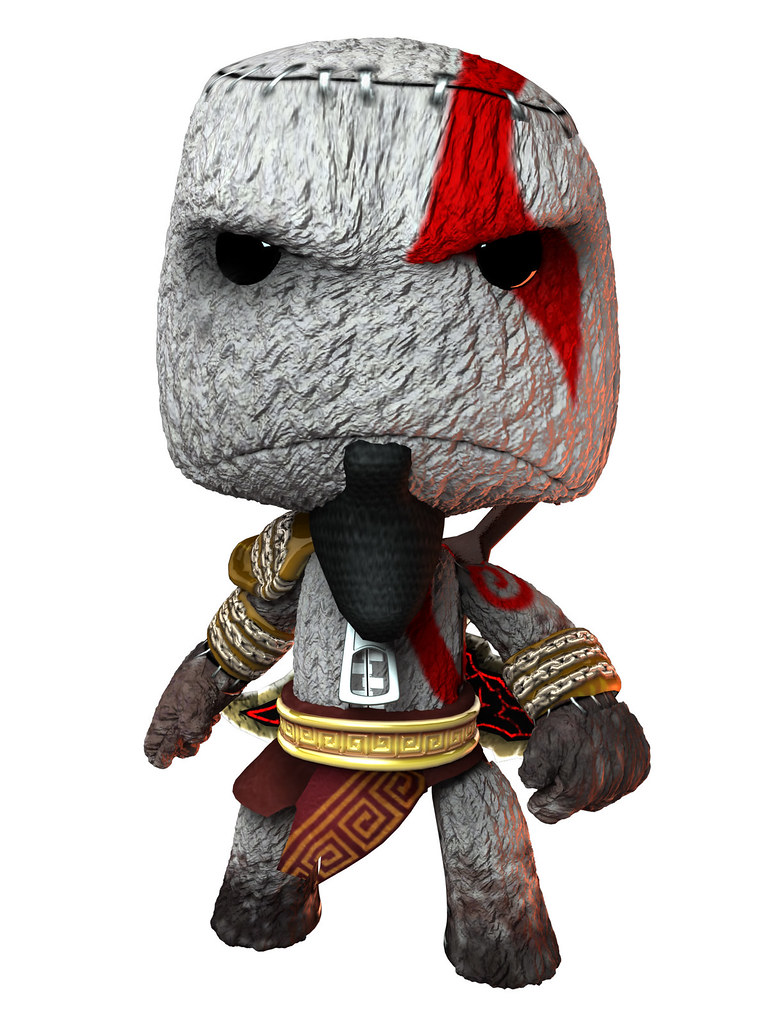Kratos stands as an iconic figure in the gaming world, a protagonist crafted by Santa Monica Studio’s masterful storytelling. First introduced in the 2005 God of War game, he has since been the face of the franchise, intertwining Greek and Norse mythologies into his rich character arc. Known for his brute strength and complicated history, Kratos is a Spartan warrior who, after being tricked by Ares into killing his family, seeks redemption and vengeance against the gods of Olympus and beyond.
His journey through the God of War series has been one of transformation, from the Ghost of Sparta to a god and then a guiding figure to his son, Atreus, in the Norse lands. Each installment, from the original God of War to the most recent, God of War Ragnarok, has expanded on his backstory and his battle with both the divine and his inner demons. It’s a tale that resonates with players, a story of a man seeking to right the wrongs of his past and facing the challenges posed by his godly heritage and powerful enemies.
Key Takeaways
- Kratos is a complex character who evolves throughout the God of War series.
- He is created by Santa Monica Studio and is known for his conflict with gods and monsters.
- The series blends elements from Greek and Norse myths, setting a rich narrative for Kratos.
Origins and Character Development
Kratos has captured the imagination of gamers since his introduction in the 2005 installment of God of War. His transition from an enraged Spartan warrior to a figure seeking redemption is a cornerstone of the series.
Spartan Origins and Mythical Lineage
Starting as a Spartan Warrior, Kratos was known as the Ghost of Sparta, a title that came from his pale skin reflecting his tortured soul. As a Demigod, he is the Son of Zeus, which connects him with Greek Mythology, creating a layered character background. This heritage places him in a world where the interactions with Greek Gods and the climb of Olympus symbolize not just personal struggle, but also a fight against the mightiest forces of his time.
Character Evolution Through the Series
Kratos’s character unfurls through different themes like revenge, redemption, and hope across the God of War series. Voiced originally by Terrence C. Carson and later by Christopher Judge, Kratos became more than a character defined by anger and violence; he is a tragic figure coping with guilt. Under the guidance of directors like Cory Barlog and Eric Williams, Kratos’s journey moves from Greek to Norse Mythology, highlighting even more pronounced character growth. From seeking vengeance against Ares and Zeus, he navigates towards a quieter life only to be drawn into the prophecies of Ragnarök. Alongside changing landscapes, Kratos’s evolution reveals a video game icon grappling with the nuances of being a god, a human, and a father.
Narrative and Setting
Kratos’ journey in video games takes him from the pantheon of Greek deities to the frosty lands of Norse legends. His story is not only about epic battles but also about deep relationships and his evolution as a character.
Greek Era and Transition to Norse Mythology
In the God of War series, Kratos begins his tale in the world of Greek mythology. The Spartan warrior ascends to become the God of War after defeating Ares. Mount Olympus serves as a central location where Kratos contends with gods like Athena. The games explore this setting through vast landscapes and powerful narratives about gods and mortals.
Transitioning to Norse mythology in later games, including God of War Ragnarok, Kratos finds himself in a setting with immense scope. The Norse cosmos is home to the Nine Realms, connected by the world tree, Yggdrasil. He faces beings like Thor and Odin and adventures through places like Midgard and Asgard, revealing the richness of Norse tales.
Relationships and Character Dynamics
Kratos, once known in Norse as Fárbauti, is much more than a fierce warrior. His relationships define much of his story. As a father, Kratos’ bond with his son Atreus, who is also Loki, forms the heart of the narrative. This relationship encapsulates themes of fatherhood and legacy.
Characters such as Freya, the powerful witch, and Mímir, the wisest being alive, add depth to the tale. Kratos’ interactions with allies like Sindri, the blacksmith, also highlight the importance of camaraderie in his often emotional journey. These dynamics help shape Kratos into an iconic character within the PlayStation brand, known for his complex personality and growth over time.
Frequently Asked Questions
This section provides answers to some of the most common questions about Kratos, the central character of the God of War series. These insights give fans a deeper understanding of his background, connections to mythology, and development across the games.
Who is Kratos’ father in the God of War series?
In the God of War series, Kratos’ father is revealed to be Zeus, the king of the Greek gods. This familial tie adds a complex layer to Kratos’ character and motives.
What is the origin story of Kratos in the God of War franchise?
Kratos was once a Spartan warrior who pledged his allegiance to Ares, hoping to become the ultimate warrior. His journey from human to the Ghost of Sparta serves as the origin story that fuels the narrative of his vengeance and redemption.
Who was Kratos’ wife and what role does she play in his story?
Kratos’ wife, Lysandra, and their daughter Calliope, play a pivotal role in his story. Their tragic death, orchestrated by Ares, cements Kratos’ path of revenge against the gods.
How does Kratos’ personality evolve throughout the God of War games?
Starting as an embodiment of rage and vengeance, Kratos’ personality evolves significantly. Over time, he becomes more introspective and driven by a desire to break free from the cycle of violence and protect his family.
What is known about Kratos’ childhood and upbringing?
Kratos’ childhood was marked by rigorous Spartan military training. He was raised to be a warrior in a society that valued strength and discipline.
How does Kratos relate to both Greek and Norse mythology within the series?
In the God of War series, Kratos’ character bridges Greek and Norse mythology. His transition into Norse mythology introduces new dimensions to the character and explores his interactions with Norse gods and legends.







